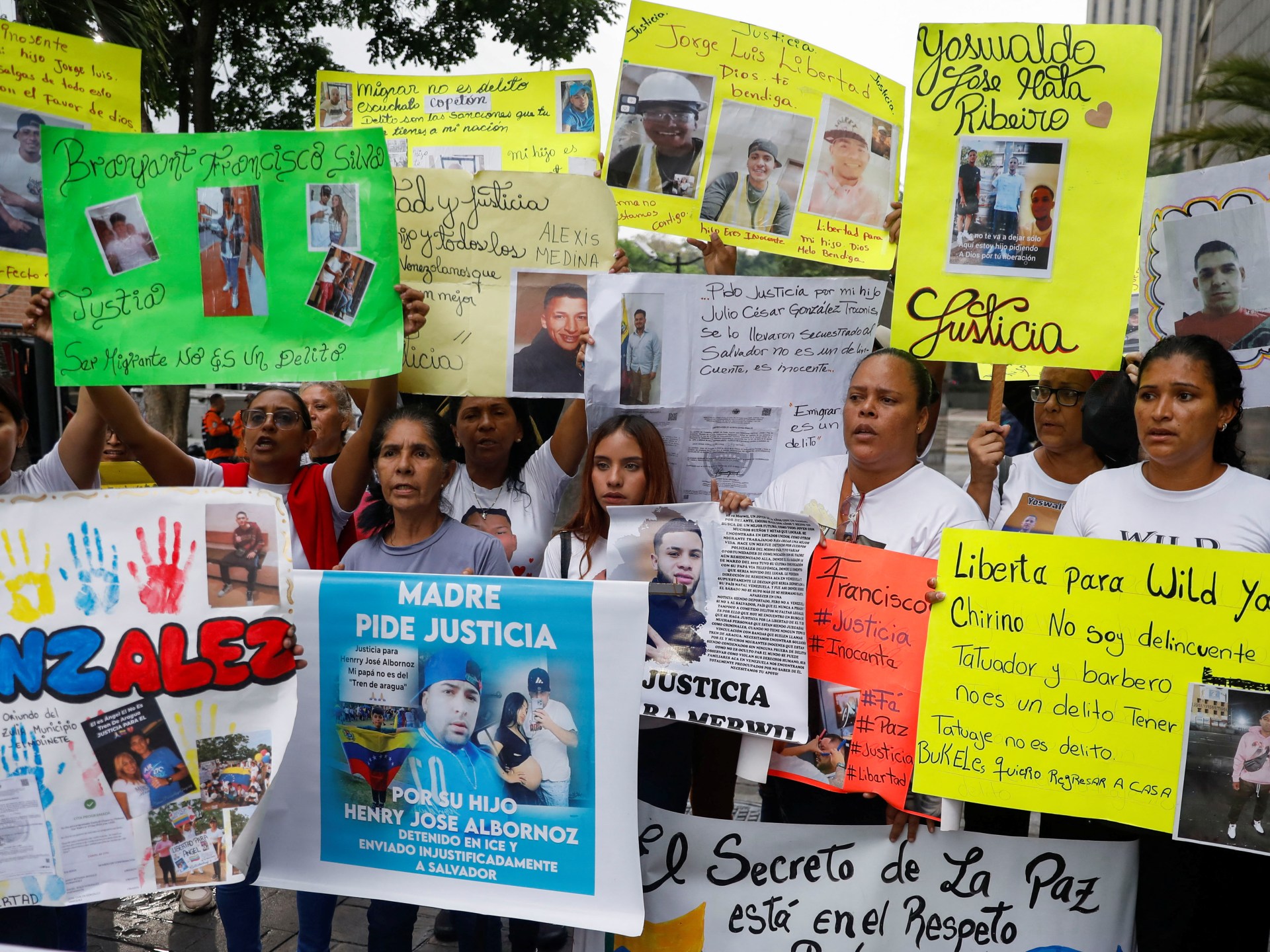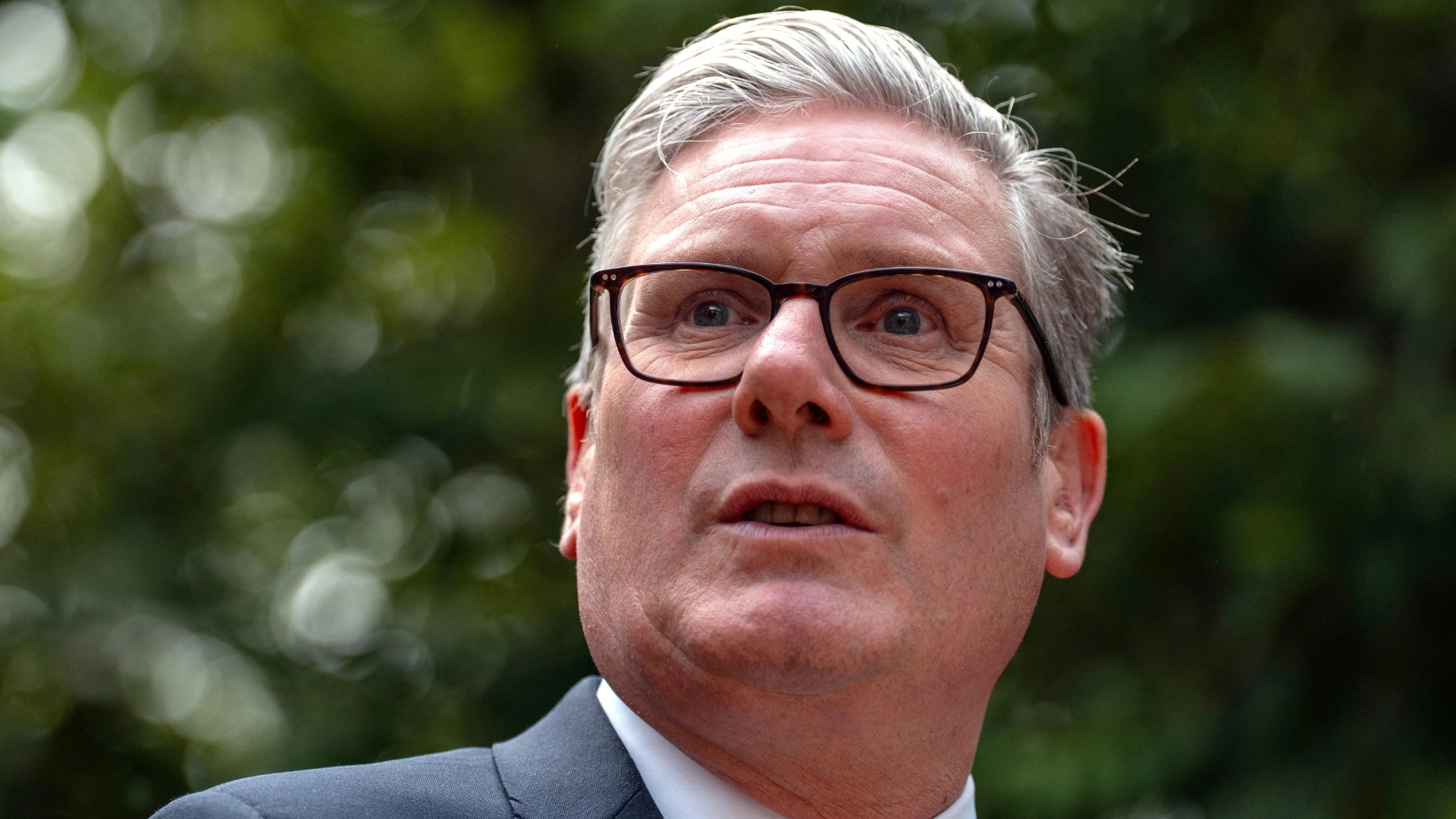In exchange for the release of American citizens and political prisoners imprisoned in Venezuela, a global agreement has been reached. Venezuelans who have been deported from the United States and imprisoned in El Salvador can now go back to their home countries.
US Secretary of State Marco Rubio confirmed on Friday that the agreement had resulted in the release of 10 Americans.
Ten Americans detained in Venezuela are on their way to freedom, Rubio wrote on social media.
Nayib Bukele, president of El Salvador, also praised the agreement, claiming that all Venezuelan detainees who have been detained in his nation have been “handed over.”
A US ally, Bukele, said in a statement on social media that “we conducted this exchange in return for a significant number of Venezuelan political prisoners, people that the regime had held as hostages for years, as well as all of the American citizens it was holding as hostages.”
These travelers are currently traveling to El Salvador, where they will stop briefly before returning home.
In order to release political prisoners in Venezuela, Bukele has previously stated that he would be willing to do so. Nicolas Maduro, a socialist leader in Venezuela since 2013, has long been criticized by him and US President Donald Trump.
“This operation is the outcome of months of negotiations with a tyrannical regime that had long refused to release one of its most precious bargaining tools: its hostages,” Bukele continued.
252 Americans who have been deported to El Salvador have been confirmed to the Venezuelan government.
Interior Minister Diosdado Cabello also disclosed to the media that seven children who had been deported from the US had also been sent to Venezuela.
The complex, multifaceted negotiations that underpin President Donald Trump’s campaign for widespread deportation in the US are just the latest instance of this.
There have long been rumors about such a deal between the three nations.
However, the arrangement raises questions about how other foreign policy priorities might be influenced by Trump’s mass deportation push. Additionally, there has been renewed scrutiny of how people who have been deported from the US are treated in foreign nations without any connection.
A contentious deportation
More than 200 people were transferred to a maximum-security facility known as the Terrorism Confinement Centre (CECOT) in El Salvador in March after Venezuela protested the deportation of its citizens from the US.
The Alien Enemies Act of 1798, a law used only three times during the war, was invoked by President Trump to facilitate that transfer.
The US leader argued that illegal immigration into the country was a “invasion” of criminals from other nations.
However, his use of that law has been contested constitutionally by the courts.
El Salvador has also been accused of alleged human rights violations, including beatings, torture, and sleep deprivation, by critics.
Bukele’s own efforts to impose a mass incarceration include the CECOT prison. With a capacity of up to 40 000 people, it opened in 2023.
Trump argued that because the Venezuelans belonged to gangs like Tren de Aragua, deporting them was a necessary step. On Friday, Bukulele echoed that accusation, saying that all deportees from Venezuela were “accused of being a part of the criminal organization Tren de Aragua.”
However, some of the men are known to have no criminal records.
Some detained Venezuelans have since filed lawsuits, alleging that some of their attorneys were targeted because of their clothing choices or tattoos, which US immigration officials then used to falsely connect them to gangs.
Deportations by third parties
Additionally, the Trump administration has argued that immigrants who are deported to third-party nations like El Salvador must be in their homes.
Venezuela has previously turned down deportations from the US. Trump and Maduro’s relationship is infamously conflicted. Trump even offered a $15 million bounty for information that might lead to Maduro’s arrest in 2020.
Trump has instead sought negotiations with the Venezuelan government during his second term in place of returning to the “maximum pressure” campaign that defined his first term as president.
The Maduro government has responded by saying it is ready to accept US deportees from Venezuela.
For instance, it hosted US special envoy Richard Grenell in Caracas in the middle of January, leading to the release of six Americans imprisoned in Venezuela. Following a second meeting with Grenell, the Maduro administration also let a US Air Force veteran who was being held in custody in May.
According to White House press secretary Karoline Leavitt, Grenell’s task was to “return all US detainees to their homes.” How many people are still living there?
However, Maduro’s presidency is still disputed by the US government. Due to fraud allegations, Maduro’s contested election for a third term in 2024 has weakened his reputation internationally.
Controversies over massive deportations
Meanwhile, the Trump administration has had its own controversy. After Grenell and Marco Rubio made rival deals, the Trump White House “botched” the agreement to free Americans in Venezuela, according to The New York Times last week.
According to The Times, Rubio had suggested a deal with Venezuelans imprisoned in El Salvador. Grenell had, however, suggested alternative terms that would allow Venezuela to maintain its trade relationship with Chevron, which would have greatly benefited its struggling economy.
Apparently, there was confusion and uncertainty as a result.
Additionally, the Trump administration’s apparent unwillingness to repatriate immigrants who may have been unfairly deported has drawn criticism abroad.
The Trump administration was given the order in June by District Judge James Boasberg to ensure that the Venezuelan men held in El Salvador had access to justice. Boasberg made the point in his decision that they could not contest both their deportations and the rumor that they were gang members because of their swift removal in March.
A federal appeals court in Washington has, however, put off that court order.
The previous Trump administration’s claims that it was unable to release the deported men from the CECOT prison are also raised in doubt by Friday’s agreement. The deportees are a problem that the US government cannot solve while they are in El Salvador, according to Trump officials.
Additionally, El Salvador’s president, Bukele, claimed he lacked the authority to stop the men from returning. Kilmar Abrego Garcia, a Salvadoran man who was briefly detained in CECOT after being wrongfully deported in March, was the subject of a conversation Bukele made in an Oval Office appearance in April.
The query is absurd, I say. How does one enter the United States through smuggling? According to Bukele, “I don’t have the authority to return him to the United States.”







